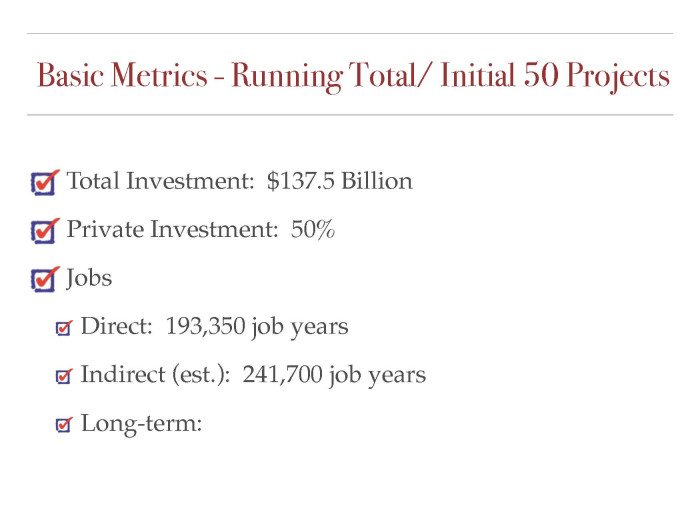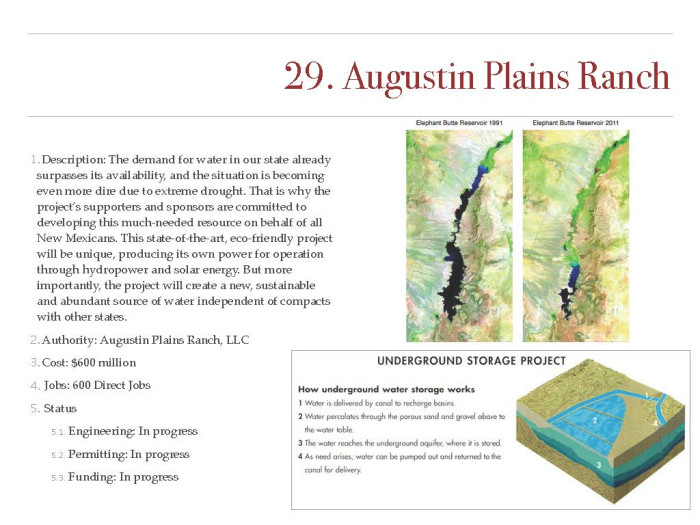Bishop: Localism vs. Infrastructure
Thursday, February 16, 2017
You can all turn off your computers and move into yurts tomorrow. We can go back to being a country of dirt farmers if that is what Americans really desire. We certainly seem pretty close to that in RI with no jobs and some of the most expensive energy in the country. If Rhode Islanders aren’t luddites why aren’t they out demonstrating in favor of new train tracks and new power plants? It doesn’t make sense to invest what leisure we can find to stand up against the death by a thousand cuts that our progressives have in store for us. Like the slowly boiling frogs who don’t hop out of the pot, most folks just put up with it.
On the other hand, people with good social capital are very motivated to turn out in the event of what they see as the life changing impact of infrastructure projects in their ‘neighborhoods’. So any 50 white folks with computers is a movement that could bring down the mighty. Meanwhile the mixed neighborhoods of Providence got steamrolled by the DOT when it came to the 6/10 connector.
West Side
Providence residents were torn between the convenience they found in the highway and the extent to which this dated infrastructure tore their neighborhoods asunder. But they never had a chance to consider real alternatives. And now, with DOT plans to eliminate some of the ramps serving Olneyville and Silver Lake, it looks as if all the state ever cared about was getting people from Johnston and beyond to 95.
South County
GET THE LATEST BREAKING NEWS HERE -- SIGN UP FOR GOLOCAL FREE DAILY EBLASTIn contrast, there seems to be no elected official in the state that isn’t calling for giving Amtrak’s proposal to straighten tracks in Charlestown the administrative equivalent of a proctological examination. Where were all these newly minted transportation experts when we were discussing the 6/10 connector? How do a handful of people in South County get this kind of consideration when thousands in Providence neighborhoods are told to pound sand. It isn’t that there are no questions to be asked about the Amtrak proposal, but most politicians seem to have made up their minds already, except Jack Reed who plays both sides of the fence.
Rep. Blake Fillippi (R-36) spoke assuredly, if parochially, telling the panel on Joe Paolino’s In The Arena that he isn’t opposed to high speed rail, only to spending a billion dollars in Charlestown to save a minute. Here’s the problem with that point of view. Table 40 of Appendix BB of the NEC FUTURE FEIS details spending of about $50 billion on new segments, including tunnels, bridges, swales and new track and about $25 billion in site work, land acquisition, etc. So this is the money to be spent to shave 75 minutes off the trip from Boston to DC. Funny, that works out to a billion dollars a minute, just the amount Rep. Fillippi tried to paint as absurd in Charlestown. But he is in favor of the whole project that spends at just that level? Well, we can expect local reps to advance parochial arguments, we just shouldn’t fall for them.
This is a crazy amount of money to talk about subsidizing rich guys to ride back and forth between the capitals of government, finance and tech. It really can’t be justified unless the users pay more. But if its going to be done, it shouldn’t look like the “S” curves in Pawtucket where an elite club screwed up that infrastructure for life or the Thurbers Avenue curve where various churches held sway.
Northwest Territory
The same nonsense is stalking Invenergy’s Clear River Power Plant project in Burrillville. Poor Burrillville, they have one power plant already and they might get another. 200 acres of 33,000 gone. Horrors.
Johnston has the dump and what do you know, the new dump is going to be in Johnston. Do you think if Johnston residents decided the land use for the dump that it would get expanded? When you site state level infrastructure, those decisions are not given over to local politics. Ditto when it comes to interstate rail and highways. That is how it has always been, and necessarily so. That doesn’t mean those decisions are always right (or, as seen from RIs horrible highway curves, completely insulated from parochial gerrymandering), but the infrastructure could never be built if the decisions weren’t made at the state or federal level.
What is Local (and what’s not)
This is not a violation of the important localism that has run schools and put a local stamp on local environs. But localism does not mean that the town council runs the railroad if it runs through town. It does not give the town veto power over important regional resource projects. While zoning remains a hot topic and can indeed be overbearing, it is a local power relative to residence and business that the state has long conferred on municipalities. So when the state or federal government try to manipulate life in the local environs, see, e.g. Rhodemap RI, they do overstep bounds that are akin to the constitutional separation of powers. But when the state and federal government locate transportation and energy facilities, they are not interfering in powers normally conferred to municipalities.
Property taxes are the province of town officials and if they don’t want to enter a tax treaty with the power plant, they don’t have to. And the state ought to butt out (as they ought to butt out of creating nontaxable property in downtown Providence). There is great potential benefit to the taxpayers of Burrillville and the State from the construction of this plant but the state should not force Burrillville’s hand on property taxes.
But plants like this will be built somewhere, as coal plants and nuclear plants are slated for retirement. So they can pay taxes to us, or they could move a couple miles over the state line and pay taxes to some other state and some other town. And on top of the tax benefits we get lower energy prices to boot.
Expensive Energy is regressive policy
But opponents are crowing this week because Invenergy, in the midst of the contentious battle over the site, didn’t bid low enough to clear the capacity auction for 2020. They are building a 900 MW plant, adding half again to our entire state generating capacity with a 50 year or longer horizon. They can still sell power in 2020, they just don’t get a kicker for being available.
Some misguided miscreants think that the much ballyhooed Deepwater Wind is just in time with these plants shutting down. Forgetting that Deepwater is 30 mw or 3% of the Clear River Project (less when capacity factor is considered), it doesn’t run reliably. So Deepwater and any other renewable energy will still require new plants as back up, Deepwater does one thing reliably: run up the bill. They are charging us 5 times the going rate for power and it goes up from there.
Invenergy has no gravy train contract like that. Indeed, the auction that opponents suggest undermines the project actually shows how important the project is for consumers and businesses. If they build a $700 million dollar power plant, they will only be able to sell their electricity if they bid less than competing sources. That means lower rates than we would otherwise see. We desperately need Invenergy to offset the horrible deal the General Assembly saw fit to endorse with Deepwater.
Have we no sympathy
While some folks who find themselves directly in the path of these infrastructure projects should have the sympathy of their peers, many of the opponents are simply advancing some other agenda, somehow suggesting that rights in conservation land are superior to private homes or businesses. That hiker’s sensitivities should outweigh safe train corridors or affordable electric rates. That a tiny spit of tribal land is some important factor here. We have no sympathy for such arguments.
And for those loud whiners who don’t like natural gas and oil, there is a switch inside your basement door with a red plate on it; shut it off. The rest of us like heat and electricity and realize fracking is an energy miracle not a monster.
Brian Bishop is on the board of OSTPA and has spent 20 years of activism protecting property rights, fighting overregulation and perverse incentives in tax policy.
Related Slideshow: Trump Infrastructure List - January 2017
Related Articles
- Bishop: 6/10 Connector - The $800 Million Mile
- Bishop: Post-Toll Impasse Between Public and Political Will
- Gencarella & Bishop: Billion Dollar ‘Big Dig’ - Fewer Bridges, Fewer Cars, Nearly Double The Cost
- Bishop: Structural Changes to Address Structural Deficit
- Bishop: Welcome Joe Biden, to Roads That Don’t Work
- Bishop: The Soft Under Belly of Rhodeworks - A Connector to Nowhere
- Bishop: 38 Stabilizations - Neverending Prov Tax Giveways are 38 Studios Redux
- RI’s Thomas Tobin: Is He America’s Conservative Bishop?
- Bishop: For Whom the Bill Tolls
- Bishop: Calm Yorke More Outrageous Than Brash Trump
- NEW: Episcopal Bishop Apologizes for Sexual Abuse at St. George’s
- Bishop: Tax [Breaks] and Spending
- Bishop: Life in the Slowlane
- Bishop: Have an Alt-Thanksgiving
- Bishop and Fired Catholic Music Director Get Into Media War
- Bishop: Not Much Difference Between Mainstream Media & Fake News
- ABC6’s “In The Arena” Features Paolino and Bishop Tobin
- Bishop: Our Love Hate Relationship With Amtrak
- Bishop: Sleepy South County or Races That Matter?













































































































